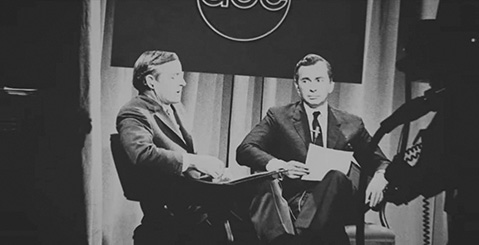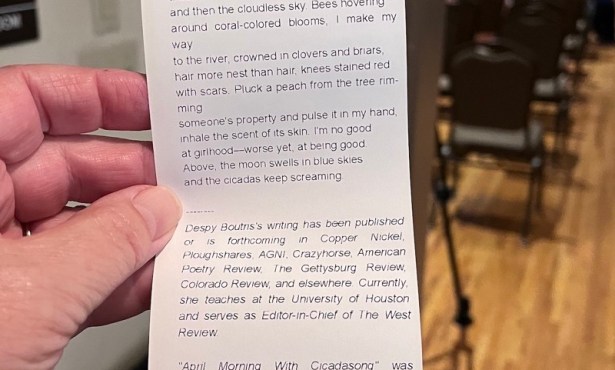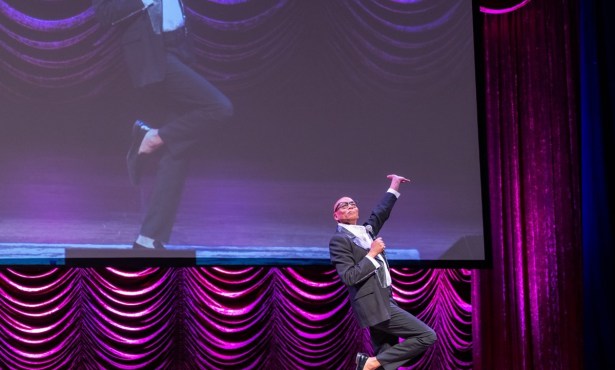‘Best of Enemies’: Gore Vidal vs. William F. Buckley
Two Renowned Intellectuals Debate Politics Circa 1968

Watching two intellectuals debate politics on 1968 broadcast television, we naturally feel a wave of nostalgia. It was better back then, especially when you consider the hammerheaded, ham-fisted quality of GOP television debate a few weeks ago. In 1968, politics was on ABC television, low in ratings, and on a budget that made the then-controversial decision to cut their gavel-to-gavel coverage and add a series of short exchanges by two articulate men who genuinely hated each other: quirky New Englander William F. Buckley, who reinvented conservatism in his day, paving the way for the Reagan years, versus Gore Vidal, the patrician-voiced novelist-turned-politician who railed against the American Empire yet made a living with historical novels about Aaron Burr, Abraham Lincoln, and Calvin Coolidge. Given the vocabulary level alone, it’s easy to think, “Those were the days.” America seemed smarter.
However, when watching this brilliant doc by Robert Gordon and Morgan Neville, the Santa Barbara–bred documentarian who made Twenty Feet from Stardom, the knee-jerk nostalgia abates as these noble voices go petty pretty quick. Vidal asks Buckley about Ronald Reagan, a Hollywood actor of juvenile roles who suggested government get out of American lives. Flexing and tongue-ing, Buckley then dismantles Vidal’s glib Reagan put-down, implying that Vidal is an undemocratic snob. He never gets around to the meat of the question — neoconservative libertarianism. Then comes the famous exchange — Vidal called Buckley a crypto-Nazi, and Buckley called Vidal a queer — which makes great television but is not exactly political philosophy.
Maybe things haven’t changed much. And this documentary focuses on all these issues, with smart extra footage like Santa Barbaran Haskell Wexler’s Medium Cool street scenes from Chicago with everybody chanting, “The whole world is watching.” This is ultimately a movie about media. We don’t have The Huntley-Brinkley Report watched by 80 percent of us anymore. But we have colorful characters, divisive moments, and ratings. What the whole world watches might be different, but it had deep roots in the childish arguments of two smart men.



